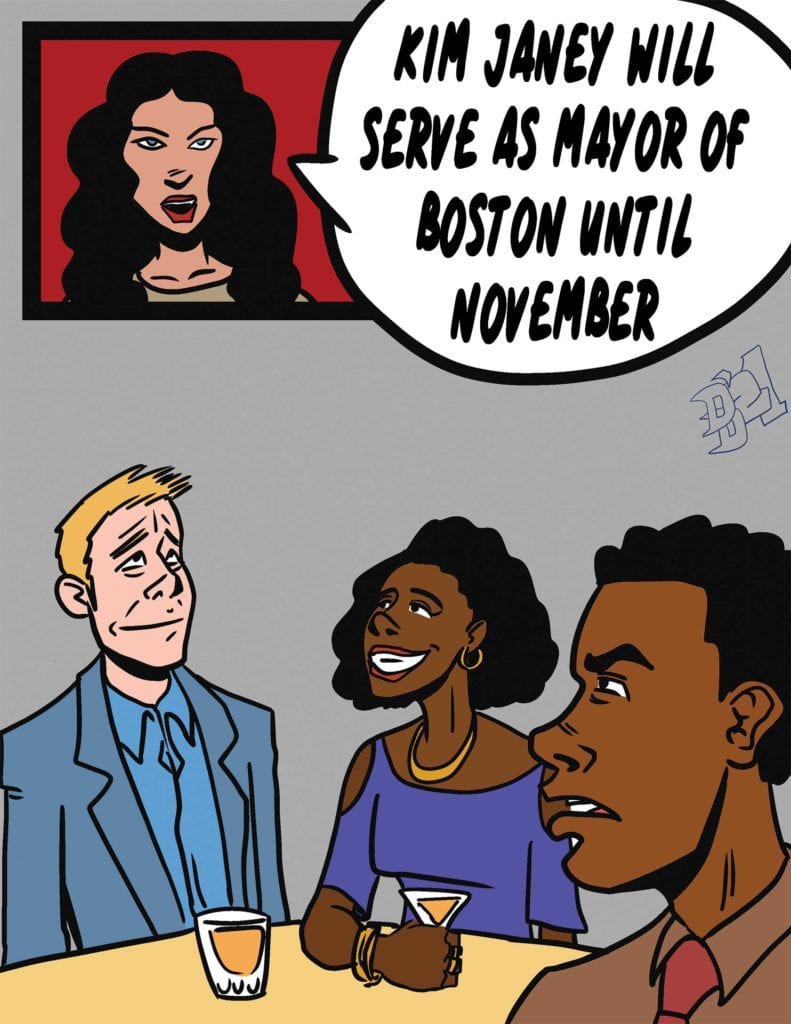
Since 1822, elections for mayor of Boston have been controversies for ethnic dominance rather than debates over the philosophical superiority of political parties. With the election of John F. Fitzgerald in 1906, the Irish gained control of City Hall for most of the 20th century. Tom Menino, a Hyde Park Italian, interrupted that domination in 1993.
Following Fitzgerald, James Michael Curley begin his first term in 1914. He was to be elected to four terms. Voters then turned to John B. Hynes in 1950 to empower a gentlemanly Irishman who would not be so politically flamboyant as Curley.
Hynes’ successor in 1960 was Roxbury’s first Boston mayor, John F. Collins. In his two terms in office he demonstrated that ethnicity was not the only politically defining issue. Collins grew up in the Elmore Street area, he went to the David A. Ellis Grammar School, and he later walked through Munroe Park every day on his way to Roxbury High School. In an effort to provide affordable housing for his Roxbury hometown, he became a national expert on urban renewal.
Kevin White and Ray Flynn followed John Collins, but when Flynn left Boston to become the U.S. ambassador to the Vatican, Menino stepped up and controlled City Hall for a period of 21 years. Since the size of the Black population had grown substantially in 2013 since Mel King ran for mayor against Ray Flynn, Blacks decided it was time to establish their own political presence.
With five Blacks and one Puerto Rican entering the 2013 race, Irish Bostonians felt confident about retaking City Hall. They even offered suggestions about attaining ethnic unity, a political status that is easy for them to accomplish. They are descendants from a nation of 4.9 million people with identical culture and a common religion — Catholicism. Travel to Belfast in Northern Ireland and you are in the United Kingdom with a population similar to the number of Blacks in New York, and the conflict with Protestantism is unsettling.
As expected, the Irish regained dominion over Boston City Hall where Marty Walsh has served as mayor until he recently departed to assume higher office, President Joe Biden’s Secretary of Labor. Kim Janey will therefore be the acting mayor until elections in November.
There has been some call for a mayor who is both Black and female. Who will emerge in the remaining eight months?






